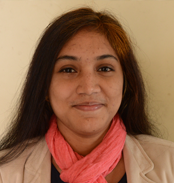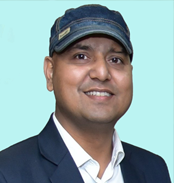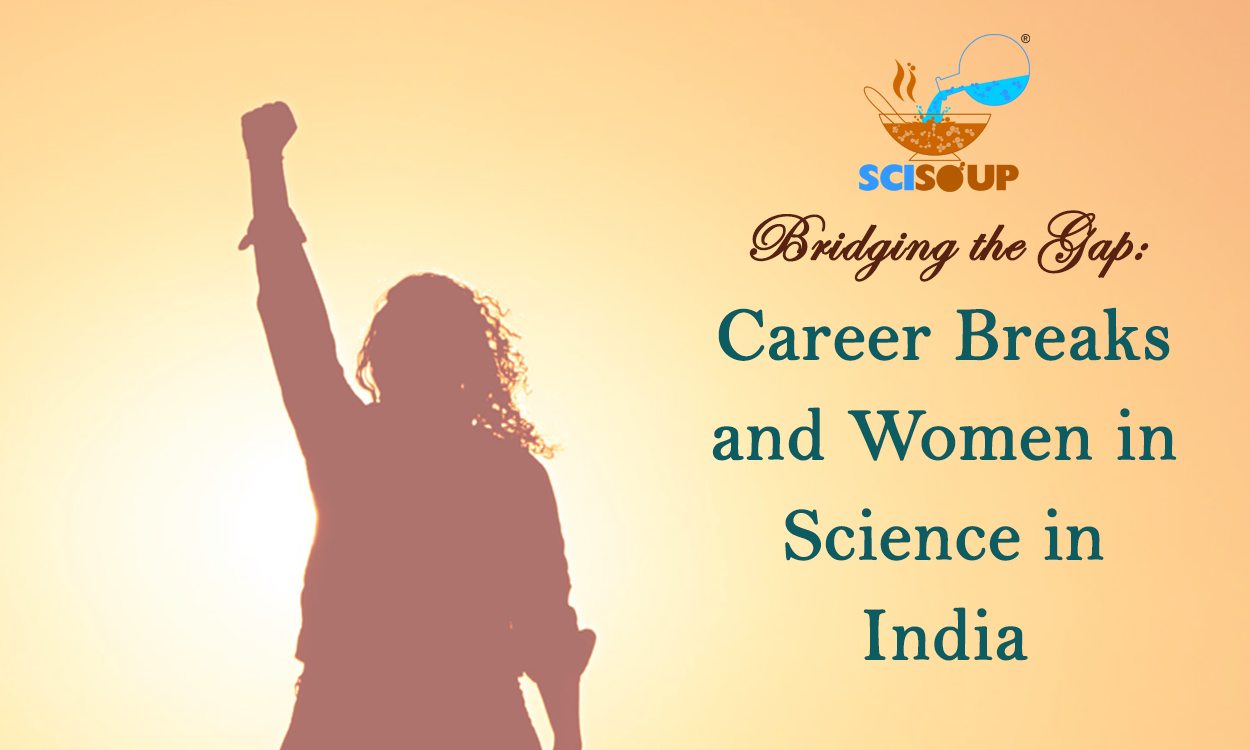
The purpose of this blog series is to share the experiences of women in science in India who have returned to the workforce after career breaks (‘comeback queens’), and translate their personal experiences into suggestions for policy and administrative implementations. In doing so, we believe that this blog series will highlight these inspirational stories, and provide role models to several women who are currently in career breaks or returning to the workforce. In addition, we intend, through these relatable, real-life examples, to send out a strong message to young women (students, researchers) in Indian science, that a balance between personal and professional goals can indeed be achieved.
Oct 12, 2020 | By Karishma S Kaushik, Keerthi Harikrishnan, Ratneshwar Thakur
In the first blog of the series, we highlighted the inspirational story of Dr. Smita Jain, Executive Director, IndiaBioscience, who returned from a career break to re-shape her professional path. You can read it here (Part-I).
In the second of this series, we bring forth a set of varied career break stories from women across science in India - from a recently graduated PhD to a passionate educator returning to the workforce after 18 years, those who returned to academic positions and those who transitioned across fields, all of whom have essayed varied roles in their professional and personal lives. Along their journeys, they have overcome insurmountable challenges, demonstrated a steadfast commitment to science and their careers, and shaped unique life stories.
Jolly Chitwan, Assistant Professor, Sri Guru Gobind Singh College, Chandigarh.
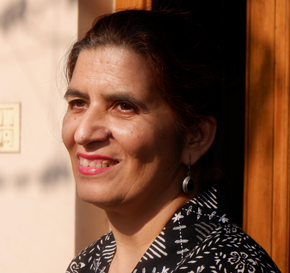
After my post-graduation in chemistry in 1984, my father encouraged me to take the CSIR and UGC NET examinations. Looking back, this was special as it was rare for women to pursue higher education and research careers at the time. I completed my PhD in 1991, and started my career as a lecturer in Guru Nanak Dev University, Amritsar. After three years of struggling to strike a balance between my teaching responsibilities and my roles as a mother and a home-maker, I decided to resign from my job. While I always wanted a career in teaching, I also did not want my daughters to be left in daycare centers, given that at the time even landline phones were a luxury.
After 18 years away from the professional space, I choose to return to pursue my dream of teaching. To start with, I was filled with apprehension, what if I lack the requisite skills? What if I am not capable enough anymore? What if I cannot balance my household and my job again? But his time round, my daughters, the very reason I resigned from my job as a young mother, were by my side. “You have taught us for 18 years during school, there is no better teacher than you”, they encouraged me. Returning to work was a great experience. I realized how passionate and committed educators can transform and shape the way students understand the subject. When it comes to teaching, I feel a career break does not affect working potential as long as one remains in touch with the advances in their field. However, I have realized the need to remain updated with the use of technology for teaching, especially in present times where classes have had to shift to online mode. From my own personal experience I can say, ‘Never regret taking a career break, and savor the new and unique experience of returning’.
Nasera Rizwana, Cofounder and Director, Rachisi Solutions.
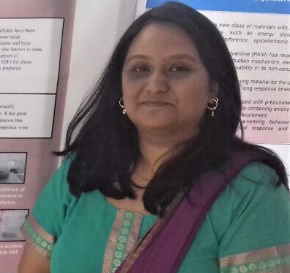
Like several other young people in India, my interest in research as a career can be traced back to the inspirational life and times of our late President, Dr. APJ Abdul Kalam. However, also like other young people, I had to make the choice of a clinical or research based career. I pursued a career in Dentistry and completed my postgraduate diploma in conservative dentistry and endodontics in 2013. During my post graduation, I realized I still wanted to pursue a research career, and with a solid education behind me I had clarity on my area of interest. Faculty across various institutes I approached were very positive and encouraging, and I got a small break at a lab in a state university. I started some initial work and applied for further funding, when I had to take a break to get married. But, the marriage was not a happy one - I faced domestic violence on the first day itself - and with the support of my parents proceeded for a divorce after one day of marriage.
As I started getting back to research, life happened again. Only this time, it smiled down on me. I got married for the second time to a very sensible, loving and supportive man, and we have an adorable daughter. This resulted in a three year break, and while I focused on my personal life and happiness, I never stopped reading articles and updating my knowledge. In 2017, I founded a startup in regenerative dentistry, which won funding from the Government of Karnataka’s flagship event Elevate 2018. This happened after several rejected grants, and we were one among 77 startups to be recognized and funded. I do not think a career break affects working potential per se, but it does involve dedicated efforts to rebuild the opportunities and network, and this needs concerted patience and commitment. As Dr. Kalam once said, ‘When suffering happens in our lives, we should be aware that beneath its negative surface, there could be a hidden opportunity for growth and deepening’.
Manobala T.
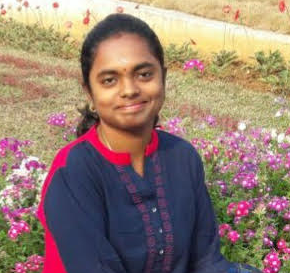
It has been a little over two weeks since I successfully defended my PhD thesis; a culmination of a five year long learning experience. Interestingly, I had breaks during my course of the PhD. My PhD work focused on biofilms and bioremediation, with molecular and proteomic experiments. Since I had two supervisors, the work was supposed to be carried out in two different places - Anna University, Chennai and Bhabha Atomic Research Centre, Kalpakkam. In 2015, as my coursework exams were scheduled to start when Chennai faced its worst flood. My exams were postponed and right at the start of my PhD, there was a delay in initiating my work by almost four months. In the middle of the PhD, I chose to get married, resulting in a brief break along my doctoral journey.
As things fell into place, I completed my work plan in 2019, and towards the end of the year I geared up to submit my thesis. However, I soon needed to take a break for the delivery of my first child. Finally, within a month of having a baby, I submitted my thesis. In spite of the current pandemic, my PhD evaluators reviewed my thesis within a short span of time, I defended the thesis and recently earned my degree. During this current post-PhD break, I am getting used to my new role as a mother, and finishing some pending manuscripts. I have also initiated a Youtube science outreach channel ‘Biotech Bites’. As I have seen, it’s nice to have breaks in life sometimes to recalibrate and refresh ourselves towards our passion.
Jayeeta Bhaumik, Senior Scientist, DBT-Center of Innovative and Applied Bioprocessing, Mohali.

After my Masters’ degree in Chemistry in 2001, I started a PhD program in North Carolina State University, USA. Two years into my PhD, I got married; my husband was a postdoc at the same university. I completed my PhD in 2007 and moved for a postdoc to Harvard Medical School (HMS)/Massachusetts General Hospital (MGH). My son was to be born in 2010, around the same time that my postdoc tenure was to end. I started looking for a second postdoctoral position half way through my pregnancy! To my delight, I was offered a postdoc position in mid-2010. I was just settling myself into the new job and my infant in the Harvard daycare, when my husband, who was working as a staff chemist HMS, initiated a plan to move back to India. He moved in mid-2011 to a faculty position in NIPER Mohali, while I stayed back in the US with our toddler and my postdoc job. While the daycare and my employer were highly supportive it was tough in practice, especially when the baby fell sick or I needed to put in long hours of lab work. I soon realised the arrangement was not working for me.
Finally, in December 2011, I returned to India, with substantial research experience but without a position in hand. I joined NIPER Mohali on a DST-WOS-A scheme in 2012; this time was valuable to kickstart my career in India and explore options to boost my academic career. I capitalized on this opportunity to initiate my research, traveled (within and outside the country) to connect and meet with colleagues, and gave a few faculty interviews. After the end of the WOS-A scheme in 2015, I volunteered in NIPER Mohali for a year, continuing my teaching and working with students. Subsequently, I joined NIPER Kolkata as an assistant professor (on contract) and worked there for 6 months, when I got an offer from DBT-CIAB, Mohali as a permanent Scientist.
Finally, six years after returning from the US, I got a full-fledged faculty position, close to my family. One thing, I must say is that I never gave up and most importantly, I always enjoyed my research (though it was sometimes without a paycheck!). During this long time, I faced both encouragement and discouragement, among which I chose the former, and continued to work towards my goals. Do not think of any job as small. Network, team up, and volunteer if needed. Never give up.
Anjali Abhay Kulkarni, Assistant Professor, Savitribai Phule Pune University.
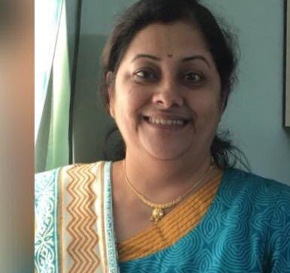
Since my school days, I have always been passionate about plants, and it led me to a BSc in Botany. I then went on to a specialize in Cytogenetics and got my MSc in Botany from the University of Pune. My first job was in a plant tissue culture company, and soon after I got married. I started a PhD at the plant tissue culture division at NCL Pune; my husband and his family were hugely supportive. After my PhD, I decided to take a break from professional work; I wanted to start a family and enjoy this new phase of my life without having to delicately balance work and family. My husband also switched from his travel-centric job to a more flexible one that allowed us to have more family time.
Three years after my break, I rejoined the Department of Biotechnology, Savitribai Phule Pune University, as a research assistant. It was a substantial challenge to the workforce, with the dual responsibilities of teaching and research. While the work hours were grueling and research facilities were limited, I enjoyed the student interactions. Finally, almost ten years after my PhD, I secured a ‘permanent’ position’ and appointment as Assistant Professor (Department of Botany) at Savitribai Phule Pune University. The years spent working in temporary positions often do not count towards faculty recruitment, and this is something that needs to be changed. I overcame this by building tenacity, being patient, and taking up opportunities that allowed me to stay in the system. I will say that the re-entry is tough, but do not undersell yourself at any cost.
Shikha Prakash, DBT-BioCARE Scientist, CSIR-National Chemical Laboratory, Pune.
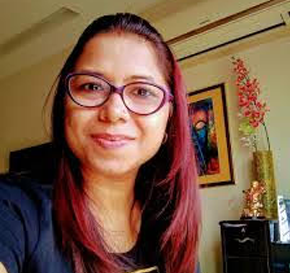
Whatever be the reason, career-breaks are hard and given the option very few would like to take that up willingly. But life sometimes presents us with real hard choices and need to make the hard decision of taking a break from professional work. In 2014, after I had a baby, I was in a situation where I had to choose between my full time postdoctoral job and early motherhood. While I did resume work after maternity leave and was willing to continue part-time, there was no provision for this in the postdoctoral fellowship. My husband and I decided that I would be the one taking a break; a major reason for this was that my existing postdoctoral fellowship salary could not support a family of three and my husbands’ income was far viable. I took a break from mainstream research for nearly four years, occupied with being a fll-time mother. At times, I didn miss the lab environment, energy and companionship. Being in the lab had become an ‘old-time habit’; I started my PhD in 2005 inTheoretical Physics at Banaras Hindu University.
Two years into the break, I started looking for opportunities to return to academic research. It was during this phase that I met Dr. Durba Sengupta at CSIR-NCL, Pune . Their work at the interface of physical and biological systems was extremely interesting, in addition to the fact that they had an impressive publication record. With the lab supporting my application, I applied for a host of fellowships and grants that I was eligible for: WOS-A, SERB, DBT-RA and DBT-BioCARE. During this time, I had also started going into the lab once a week to get familiar with the new project. After almost two additional years, I learnt of my selection for the DBT-BioCARE fellowship. I returned to academic research with full gusto, and in no time was back into the routine of a lab researcher.
Today, I feel proud that I have assayed both roles, that of a working mom and full-time caregiver. I discuss my scientific problems and findings with my daughter (she is 6 years old now), show her graphs, and do small experiments with her; it gives me huge satisfaction when she asks me questions related to my work. At that moment, I am overwhelmed with the feeling that my career break had served its purpose. To my fellow colleagues, all that I can say is that a career break is not a calamity or something that cannot be set right.
If a career break happens, work towards planning your return. Work towards getting into the system at least two years in advance. Try to remain in touch with the academic community, a casual phone call, feedback on their recent publications, it can be anything. Most importantly do not expect things to turn overnight, be patient with yourself and the system.
Shweta Panchal, DST-WOSA Scientist, Jawaharlal Nehru Centre for Advanced Scientific Research (JNCASR), Bangalore.
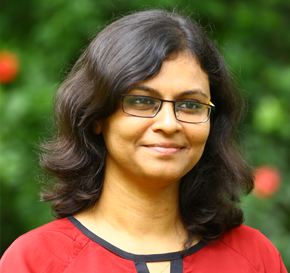
After completing my Masters in Microbiology from MSU, Baroda, I got accepted into the PhD program in plant pathology at University of Texas at Arlington, USA. I was just starting to enjoy working in a dynamic lab when I had a major setback in my health which required me to travel frequently to India on long breaks. With immense support from my PhD mentor, I successfully defended my PhD and was excited to start my Postdoc in the US. Just when I was gearing up for the next phase of my life, recurrence of my condition alerted me reassess the situation and focus on my physical well-being. I made a tough call of choosing my health over a career in the US. I moved back to India for rigorous treatment, and it took me 2 years to be back on my feet. I soon realized the system was very different in India and although I faced some initial difficulties, I got guidance from my mentors at MSU, Baroda, where I kickstarted my research career. Later, I joined JNCASR, Bangalore and soon got selected for the DST-funded WOS-A fellowship. It has been a pleasant journey in India so far, largely because of supportive mentors and colleagues.
My PhD program had a very different system where administrative assistants and lab managers took care of all the paper work and I just needed to abide by the deadlines. So I found it challenging to deal with the logistics of doing science in India. I saw this as a good opportunity to hone my people skills. I learnt and adapted quickly and was able to get things rolling. Although my break did not affect my working potential per se, I did meet new challenges such as adapting to a different work culture and being constantly worried about the age-career progression factor. I would say the key is to be open to learning new things and not hesitate to ask for guidance; there are some wonderful people out there to help you along your journey. Yes, these will be gap years in your resume, but never forget what you learnt from them and how they have shaped you for the challenges that lie ahead. Finally, it all comes down to making the best of what life throws at you.
Snehal Kulkarni, DBT-BioCARE Scientist, National Centre for Cell Science, Pune.
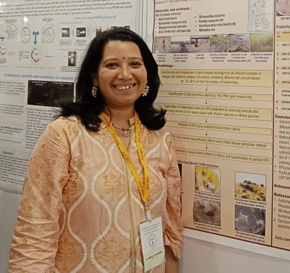
I did my PhD from MACS-Agharkar research Institute, Pune. I had a really amazing PhD mentor who was a huge inspiration for me, both as a woman and a scientist. My daughter was born soon after I defended my PhD and I took a break from research to focus on my child and family. After two years, I was ready to take the plunge back into research and I started as a Research Associate in Modern College, Pune with my PhD guide Dr. Pradnya Kanekar. I worked really hard and successfully published work that I had started as a PhD student. At the end of these four years, I applied to the DBT BIOCARe scheme, and secured funding to start my independent project. With this funding, I started as an early career scientist at NCCS, Pune under the mentorship of Dr. Yogesh Shouche. This gave me the opportunity to explore bench research as well mentor students. I presented my work at several conferences and engaged in some interesting discussions. I will say I am very grateful for schemes such as DBT BIOCARe for giving me this opportunity to establish myself as an independent scientist after a career break. Dr. Yogesh Shouche was a wonderful mentor, who gave me the freedom to think and work independently. Currently, I am close to the completion of my project, and the independent grant has given me the confidence to pursue new positions in STEM. Along this journey, I have evolved greatly as a person and a scientist. For all the women who wish to re-enter the workforce, “Do not lose your confidence, work hard, give your best and success will follow you”.
As our featured scientists have demonstrated, there is no ‘one way’ and there is no ‘right way’ to straddle the divide between professional and personal aspects of life. These varied stories are testimony to the fact that all our journeys are meant to be unique, and challenges serve as opportunities to craft our individual stories.
SciSoup claims no competing interest.

Assistant Professor and Ramalingaswami Fellow at Savitribai Phule Pune University, Pune.
